BANK OF ALBANIA
PRESS RELEASE
Governor Sejko delivers a lecture at London School of Economics and Political Science (LSE)
Publication date: 30.03.2023
On 28 March 2023, the Governor of the Bank of Albania, Mr Gent Sejko, invited by the London School of Economics and Political Science (LSE), delivered a public lecture on “Dealing with Shocks at the Gates of EU: New Policy Instruments & The Role of Central Banks”.
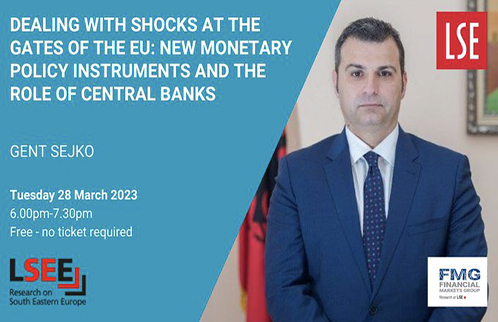
This lecture was organised in the framework of the long-standing cooperation between the Bank of Albania and the London School of Economics and Political Science (LSE) and was attended by international experts in economy, academic body of the University, as well as by foreign and Albanian students studying at LSE.
The Governor discussed the economic and financial challenges faced by the small and open regional economies in Western Balkans, particularly in Albania, in their path toward the European Union (EU) and the implications such challenges pose to the monetary and financial policies undertaken by the relevant central banks.
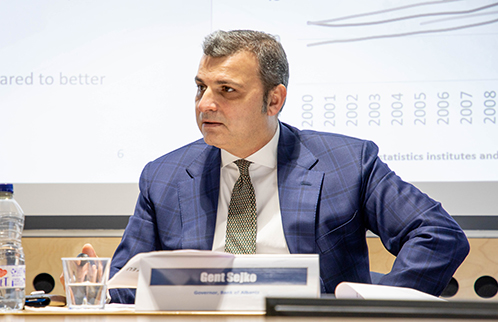
The countries in Western Balkan are closely related to the EU in cultural, economic, financial and political aspects, and the EU membership remains one of the largest aspirations for the regional countries. For more than two decades, the Western Balkan region has gone through a steady convergence to the EU living standards, but the pace of this convergence has slowed down somewhat in the last decade, due to the crises faced by the EU, which are imported in the regional countries as well.
The European integration process is one of the most important anchors for the sustainable development of Western Balkans, particularly in view of the structural reforms which aim at achieving convergence at a shorter time. On the other hand, the regional countries - being at the gates of the EU - have been shock importers without direct access to the policies enacted within the EU.
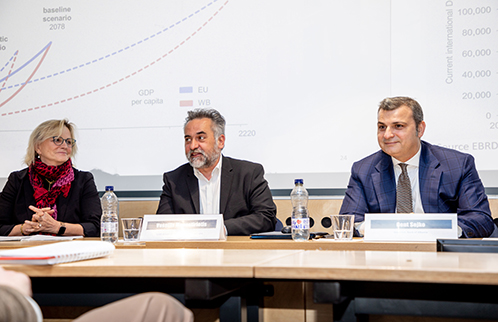
Regarding Albania, Mr Sejko highlighted that like regional countries, we have dealt with shocks imported from the EU. In this context, as an effective response, we have combined monetary policy instruments, macroprudential tools, and financial sector reforms. The flexibility and relative good strength of the Albanian economy have boosted the effectiveness of the policies implemented by the Bank of Albania. However, the Bank of Albania remains attentive and monitors continuously the potential adverse implications of the situation and the challenges that the Albanian economy faces.
Concluding, the Governor emphasised that the structural policy agenda is instrumental in improving the WB regional economies, thus bringing them closer to the EU Member States and ensuring we are equal and deserving partners when our time to join comes. If the Western Balkan authorities continue implementing structural reforms, then: the potential growth would increase; the WB economy would grow at a higher pace; and convergence; would be faster.
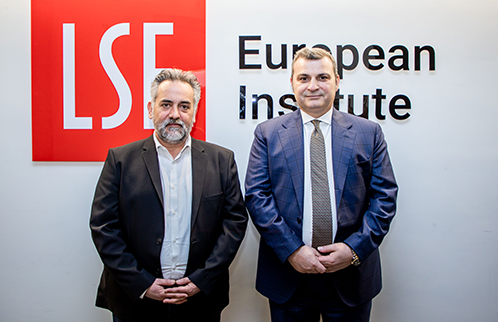
Next, the presentation of Governor Sejko was followed by the discussions of professors at London School of Economics and Political Science (LSE), Ms Piroska Nagy-Mohácsi and Mr Vassilis Monastiriotis. Both professors commended the policies undertaken by the Bank of Albania which have helped in successfully overcoming the external shocks and have prepared the institution of the central bank for the EU integration process.
They pointed out that the Bank of Albania, as a result of the fast response and coordination with the economic policies, has succeeded in providing a concrete support for the development of the country and tackling the back-to-back shocks in the last years, in turn serving as a model institution in the integration process of Albania.
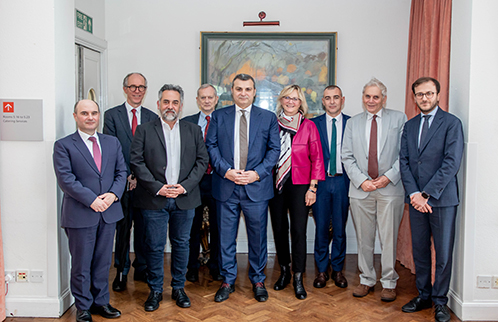
Also, the professors at LSE thanked the Governor for delivering the lecture and the addressed issues, which are rather present and of a high interest to participants.
At the end, Governor Sejko answered the questions of participants attending the lecture.

 Twitter
Twitter
 Youtube
Youtube
 Facebook
Facebook
 Flickr
Flickr
 RSS
RSS
 Subscribe
Subscribe
 Feedback
Feedback